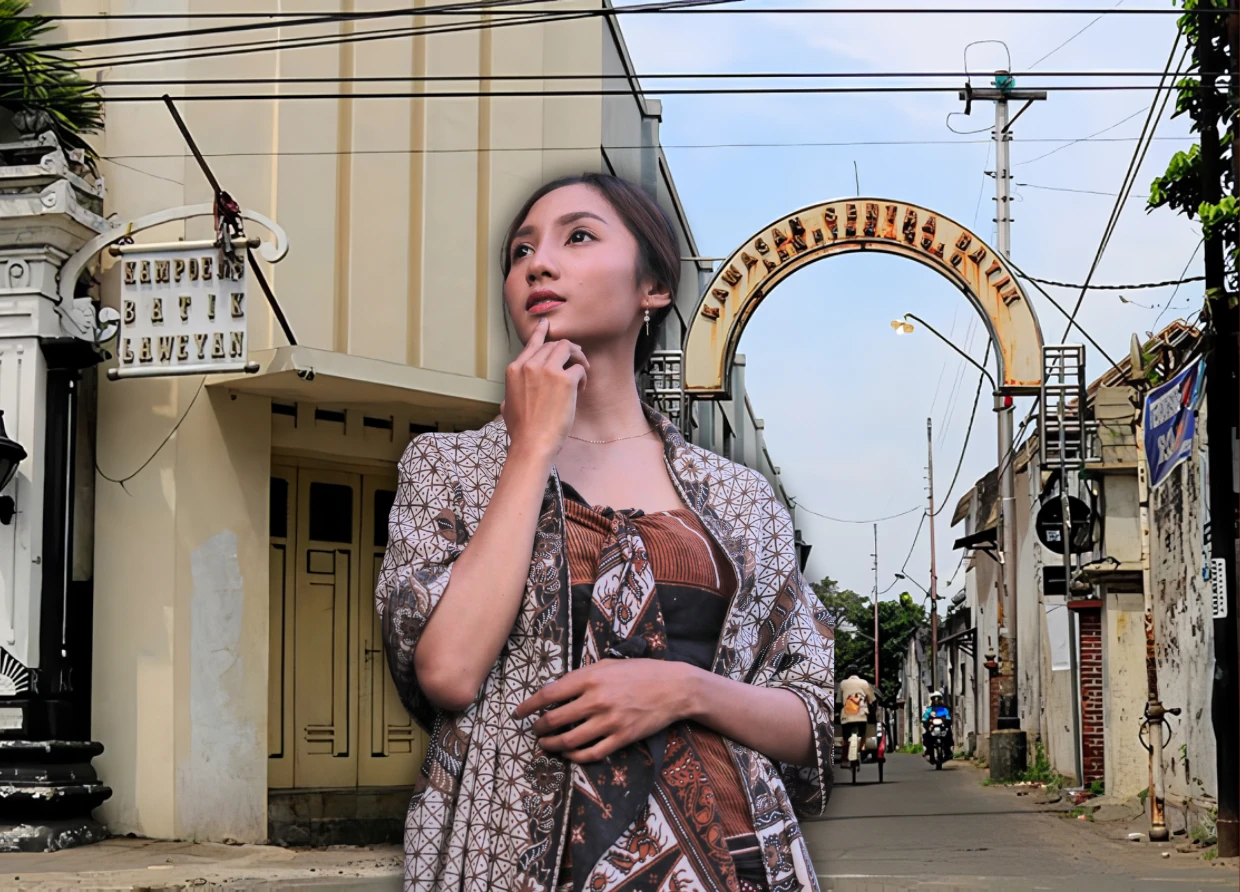REVITALIZATION OF LAWEYAN: FROM BATIK HUB TO CULTURAL TOURISM DESTINATION
Laweyan Transforms from Batik Industry Hub to Thriving Cultural and Educational Tourism Destination

Since the 15th century, Laweyan has been a vital economic center, initially renowned for its production of yarn and fabric. However, the region's identity underwent a significant transformation due to the influence of Ki Ageng Henis, who introduced the art of batik to the local community. This craft soon became an integral part of Laweyan’s cultural heritage, passed down from generation to generation, and evolved into a thriving industry.
A pivotal figure in the development of Laweyan's batik industry was Mbok Mase, a woman whose leadership and entrepreneurial acumen greatly shaped the local batik scene. The title Mbok Mase itself symbolizes the significant role women in Laweyan played in leading and growing the batik business. The precision, elegance, and grace that women brought to batik work made them well-suited for this art form. Mbok Mase’s success as both a prosperous businesswoman and a competent leader helped establish Laweyan as a key player in the batik industry.
During the presidency of Soekarno, the batik industry in Laweyan reached its peak, with high demand for batik for everyday wear and traditional ceremonies. This led to great prosperity for the batik merchants, or juragan batik, in the region. However, the rise of cheaper, faster printing technologies from China in the 1970s introduced a major shift in the industry. Batik printing gradually replaced traditional hand-drawn and stamped batik, and the lack of knowledge among the general public about the differences between authentic batik and printed versions worsened the situation.
Additionally, the younger generation, especially young women, showed decreasing interest in continuing their family’s batik business, preferring formal education and careers in what they considered more promising sectors. The economic crisis of 1997-1998 further exacerbated the struggles, as fluctuating costs of imported materials caused many batik businesses to close their doors.
Despite these setbacks, post-New Order Laweyan has experienced a cultural resurgence, thanks to local efforts to transform the area into a cultural tourism hub. Alpha Fabela Priyatmono, a prominent batik entrepreneur, recognized the untapped potential in Laweyan’s historic buildings and sought to elevate the area's historical and aesthetic value. With the help of the local community, he founded the Forum Pengembangan Kampoeng Batik Laweyan (FPKBL), a forum dedicated to promoting educational tourism and preserving local culture.
The initiative has received support from local government, culminating in a decree officially designating Laweyan as a batik village and granting FPKBL authority over its management. As a result, Laweyan has transformed from a mere batik industry center into a vibrant educational tourism destination. The educational tourism concept offers visitors insight into the rich history, culture, and batik-making process unique to the region.
Key attractions in Laweyan now include:
- Interactive Batik Workshops: Visitors can engage directly in the batik-making process and learn from local artisans.
- Historic Houses: Unique, old buildings tell the story of Laweyan's evolution.
- Historical Places of Worship: Sites like the Laweyan Mosque and the ancient langgar (small prayer houses) provide a glimpse into the area’s spiritual heritage.
- Other Historical Sites: Bunkers and the graves of important figures such as Ki Ageng Henis and KH Samanhudi further enrich the educational experience.
The transformation of Laweyan into a cultural and educational tourism destination has created new economic opportunities for the community while preserving the rich cultural legacy of Indonesian batik. With continued support from local businesses, government, and the broader community, Laweyan is poised to become a world-class center for cultural learning and artistic appreciation.
#THE S MEDIA #Media Milenial #Laweyan #Batik #Cultural Tourism #Indonesia #Mbok Mase #Historical Sites #Educational Tourism #Batik Workshops #Local Economy #Heritage Preservation #Traditional Crafts #Batik Industry #Laweyan Village #Tourism Development #Ki Ageng Henis #Cultural Heritage #Sustainable Tourism #Local Leadership #Community Initiatives #Economic Revival #Yogyakarta #Artisanal Crafts


























